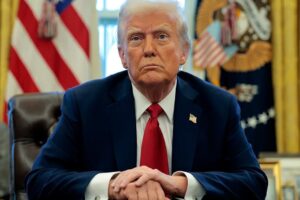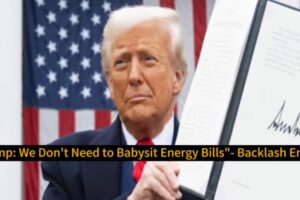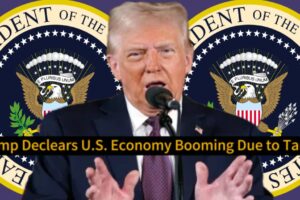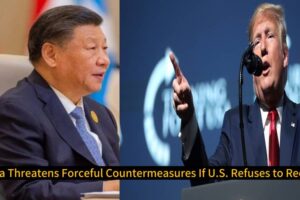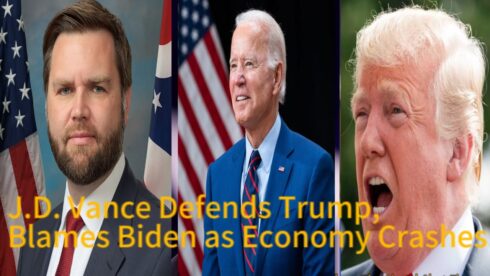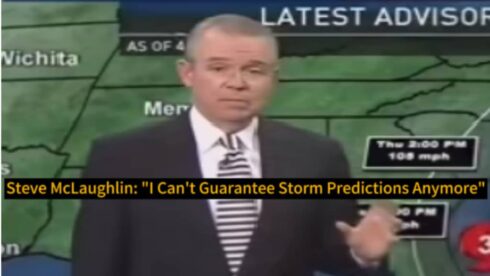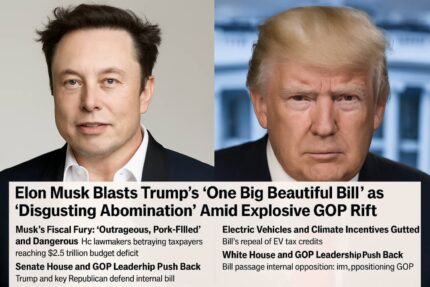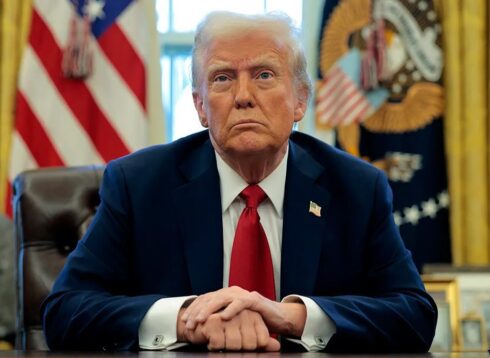J.D. Vance begins his Fox News appearance by parroting Donald Trump’s favorite political scapegoat: President Joe Biden. Faced with a sharp economic downturn—the first contraction in three years—Vance deflected blame from Trump’s aggressive tariff policies and instead launched into a convoluted attack on the national debt and trade deficit. He framed the crisis as “Biden’s economy,” ignoring the direct influence of Trump-era economic policies that continue to dominate the current market landscape.
Vance’s assertion that Biden inherited “$2 trillion of debt” and “a $1.2 trillion trade deficit” as the root of economic collapse was met with immediate skepticism. Economists argue that these metrics are largely unrelated to the present inflationary pressure and market instability. The real culprit, they say, is the sweeping set of tariffs Trump imposed on America’s top trading partners—tariffs Vance now defends with robotic loyalty, despite their devastating effect on small businesses, consumer prices, and investor confidence.
Vance’s Fox News Fumble Fuels Backlash
J.D. begins to unravel further under pressure from Fox News host Bret Baier, who pressed him on the visible economic decline. Instead of offering a concrete explanation, Vance resorted to buzzwords and deflections, claiming that the Trump team is “resetting” the economy and helping workers—despite clear evidence to the contrary. The Vice President’s tone-deaf defense landed poorly even among conservative commentators, who noted the contrast between his narrative and Americans’ lived experiences.
In a particularly cringeworthy moment, Vance suggested that Trump’s tariffs were a bold act of economic patriotism, saying, “It would have been very easy for Donald Trump to do what administrations past had done.” What he failed to acknowledge was the critical difference between calculated trade reform and reckless tariff imposition without proper economic buffers. Trump’s 145% tariffs on China and 25% on Canada and Mexico have not only disrupted supply chains—they’ve forced thousands of small businesses into layoffs and closures.
Tariffs, Not Debt, Are Tanking the Economy

J.D. begins an aggressive misinformation campaign by implying that America’s shrinking GDP is the result of long-term financial burdens like the national debt. In reality, the economic nosedive is directly linked to Trump’s extreme tariff policies. Since their enactment, inflation has surged, shipping costs have skyrocketed, and American consumers are seeing fewer goods on increasingly barren shelves.
The Trump-Vance economic doctrine lacks strategic foresight. Experts agree that if the administration were genuinely committed to “economic self-reliance,” it would have first invested in domestic industry—offering subsidies, tax incentives, or infrastructure development. Instead, the White House chose to increase costs on imports without bolstering local production capacity. The result? A squeeze on both producers and consumers, with Vance left awkwardly defending policies that are objectively harmful to the average American.
Vance Destroys His Own Political Future
J.D. Vance begins sacrificing his credibility—and potentially his future presidential aspirations—by aligning himself too closely with Donald Trump’s most controversial economic policies. Once viewed as a thoughtful conservative voice, Vance is now being ridiculed for acting as little more than a cheerleader for the former president. His refusal to admit error, even in the face of overwhelming evidence, signals a disturbing lack of independent judgment.
Political insiders suggest Vance’s blind loyalty may backfire in the long term. With polls showing rising public discontent over inflation and economic instability, voters are growing increasingly wary of candidates who refuse to acknowledge mistakes. Vance’s dogged defense of Trump’s economic mismanagement could haunt him in future primaries, where authenticity and accountability are becoming more valuable currency than partisan loyalty.
Trump’s Own Words Undercut Vance’s Argument
J.D. begins digging himself into a deeper hole by insisting that the economy is solely Biden’s responsibility. However, Donald Trump himself publicly claimed ownership of the economy just months ago. On Truth Social, Trump wrote, “THIS IS THE TRUMP STOCK MARKET… INVESTORS ARE PROJECTING THAT I WILL WIN.” That boast now undercuts Vance’s entire argument, making his televised defense look not only disingenuous but factually absurd.
Trump’s attempt to cherry-pick economic ownership based on stock performance is already backfiring. The market downturn, paired with visible supply chain problems and layoffs, shows that investors aren’t betting on a Trump recovery—they’re bracing for prolonged economic turbulence. Vance’s inability to reconcile Trump’s own statements with his defense strategy further exposes the inconsistencies in MAGA messaging.
Americans Aren’t Buying the Spin—And They’re Paying the Price
J.D. begins gaslighting the American public, assuming they’re too ignorant to connect the dots between Trump’s tariff policy and their economic struggles. But working families, small business owners, and independent investors are feeling the pain firsthand. From rising grocery bills to stalled manufacturing orders, the consequences of Trump’s economic nationalism are being felt in real-time, and no amount of spin can disguise that reality.
Ultimately, the Trump-Vance economic approach seems less about strategy and more about spectacle. Rather than admit fault or adapt their policies, they’ve chosen to scapegoat others while doubling down on failed tactics. As inflation climbs, jobs disappear, and financial insecurity spreads, Americans are left watching a Vice President willingly torch his credibility to defend a failing economic agenda—and wondering just how much more damage this administration is willing to do.



